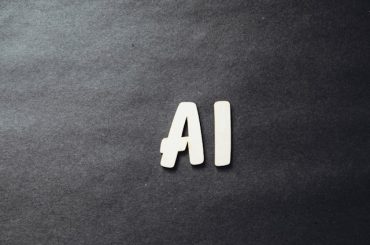In our previous blog, we delved into how artificial intelligence (AI) revolutionizes supply chain management (SCM). Now, as we venture deeper into the realm of AI-powered supply chains, we will see that AI’s potential reaches far beyond. It is catalyzing a complete evolution in supply chain planning, transforming it from a reactive to a proactive function infused with strategic agility and data-driven decision-making.
AI: The Next Level in Supply Chain Planning
Traditional supply chain planning processes are affected by various challenges, including disparate data, siloed teams, and long planning cycles. These challenges severely reduce businesses’ agility, curtailing their ability to respond quickly to major disruptions or market shifts. AI is rapidly changing this narrative, fostering a proactive, integrated, and strategic approach to planning. Let us explore the AI-driven trends that are reshaping supply chain planning:
1. Demand planning and forecasting
Accurate demand forecasting and planning are crucial for optimizing production, managing inventory, improving customer service, and enhancing supply chain management. However, traditional processes often rely on outdated or fragmented data, making them time-consuming and reactive.
AI is gaining traction as a valuable tool for streamlining forecasting, adapting to market changes, and making proactive decisions. Machine learning algorithms analyze historical and real-time data, enabling more accurate demand predictions and better-informed supply chain decisions. Precise forecasts facilitated by AI-driven tools provide executives with enhanced insights, responsiveness to change, and efficient resource allocation.
Example: A furniture retailer achieved 98% forecast accuracy by implementing an AI-powered demand-sensing tool. The tool analyzed numerous data sources, including purchase patterns, consumer preferences, and seasonal factors, to predict demand for each product.
2. Price optimization and revenue management
Implementing an effective pricing and revenue management strategy is essential for businesses to stay competitive, optimize earnings, maintain customer loyalty, and enhance overall profitability. AI can play a significant role in this process by using data analysis to identify patterns and make informed pricing decisions. Dynamic pricing strategies, driven by AI-enabled algorithms, adjust prices based on real-time market conditions and customers’ willingness to pay. AI-driven tools also optimize revenue management by analyzing data and providing actionable insights.
Example: A Fortune 500 transportation and logistics company saved about $19M annually with a 12% increase in prediction accuracy by adopting AI-powered dynamic pricing strategies. This approach helped them avoid overpaying carriers or losing business due to inaccurate market price predictions.
3. Sales & Ops planning
Sales and Operations (S&OP) Planning is critical to supply chain planning, harmonizing demand, supply, financials, and other business functions. Traditionally, this process has been intricate, time-consuming, and prone to errors.
AI-driven tools are transforming S&OP planning by enabling scenario planning, streamlining operations, providing end-to-end trackability, and anticipating disruptions. Automation and real-time insights empower businesses to make informed decisions and enhance their overall efficiency.
Example: A prominent food and beverage organization adopted network modeling, scenario planning, and AI-powered continuous design. This strategic shift empowered regional leaders to optimize their respective networks, anticipate potential disruptions, and enhance decision-making processes.
4. Workforce Planning
Efficient workforce planning is a critical aspect of supply chain planning, ensuring the availability of employees with the right skills and capabilities. AI-driven tools provide a systematic approach to streamlining workforce planning processes.
They enable optimized scheduling based on factors like working hours, job profiles, and demand requirements. AI also analyzes existing skill sets, identifies gaps, and recommends training programs to close those gaps. Performance management becomes data-driven, enabling informed decisions about promotions, transfers, and career development opportunities.
Example: A wholesale distributor implemented AI-powered workforce management capabilities, allowing automatic labor scheduling based on actual demand and employer preferences. This improved employee satisfaction and resulted in significant labor cost savings.
5. Supply Chain Risk Management: Enhancing Resilience with AI
Supply chain risk management is critical to supply chain planning, particularly in today’s complex and unpredictable business landscape. AI-driven tools can significantly enhance the resilience of supply chains by identifying and mitigating potential risks.
These tools leverage real-time data, machine learning algorithms, and predictive analytics to monitor various risk factors, such as geopolitical events, natural disasters, supplier disruptions, and demand fluctuations. By proactively identifying risks and providing actionable insights, AI empowers businesses to implement contingency plans, optimize inventory levels, and maintain a robust supply chain ecosystem.
Example: A global electronics manufacturer leveraged AI-powered risk management tools to anticipate supply chain disruptions caused by the COVID-19 pandemic. By analyzing real-time data and market trends, the company proactively identified alternate suppliers, adjusted production plans, and ensured minimal disruptions to its operations, thus gaining a competitive advantage.
Conclusion
AI is revolutionizing supply chain planning by enabling proactive decision-making, optimizing pricing and revenue management, streamlining S&OP planning, enhancing workforce planning, and strengthening supply chain resilience. Embracing these AI-driven trends empowers businesses to stay ahead of the competition, respond effectively to market changes, and build a future-ready supply chain.
By harnessing the power of AI, supply chain planning enters a new era of efficiency, agility, and strategic advantage.
















